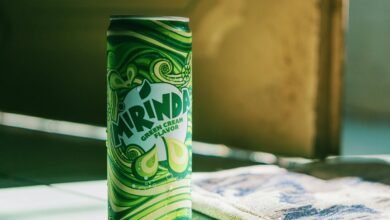What Is CBD?

CBD, or cannabidiol, is a compound extracted from the cannabis plant. Unlike THC, it does not produce psychoactive effects. Instead, CBD interacts with the body's endocannabinoid system, which plays a role in regulating various functions. Its rising popularity suggests potential benefits for issues like pain and anxiety. However, understanding its origins and mechanisms is crucial, as well as the factors to consider before incorporating it into one's health regimen.
The Origins of CBD
The origins of CBD, or cannabidiol, are deeply rooted in the history of cannabis cultivation and use.
Tracing back thousands of years, ancient civilizations harnessed the plant for its medicinal properties.
CBD history reveals its evolution from a traditional remedy to a modern wellness product, reflecting society's growing appreciation for natural alternatives.
This shift underscores a desire for freedom in health choices.
How CBD Works in the Body
Cannabidiol, or CBD, interacts with the human body through a complex network known as the endocannabinoid system (ECS).
This system comprises cbd receptors that regulate various physiological processes. When CBD binds to these receptors, it influences neurotransmitter release and cellular activity, promoting balance and harmony within the body.
Understanding this interaction highlights CBD's potential role in supporting overall well-being and enhancing personal freedom.
Potential Benefits of CBD
As research continues to expand, numerous potential benefits of CBD have emerged, capturing the attention of both the scientific community and the general public.
Notably, CBD has shown promise in pain relief, offering an alternative for those seeking natural solutions. Additionally, its properties may aid in anxiety reduction, contributing to improved mental well-being.
These factors position CBD as a compelling option in holistic health discussions.
Considerations Before Using CBD
What factors should individuals consider before incorporating CBD into their wellness routine?
First, understanding dosage guidelines is essential to achieve desired effects without adverse reactions.
Additionally, individuals must be aware of legal regulations in their region, as laws surrounding CBD vary significantly.
Evaluating personal health conditions and potential interactions with medications can further ensure safe and effective use of CBD, promoting individual freedom in wellness choices.
Conclusion
In a world increasingly obsessed with quick fixes and pharmaceutical solutions, it's almost ironic that a natural compound like CBD, derived from a plant often stigmatized, is gaining traction as a remedy for modern ailments. While some may dismiss its benefits as mere hype, growing evidence suggests otherwise. Ultimately, as society leans towards holistic health, CBD stands at the crossroads of tradition and innovation, reminding us that sometimes, the best solutions are rooted in nature, not synthetic chemistry.






